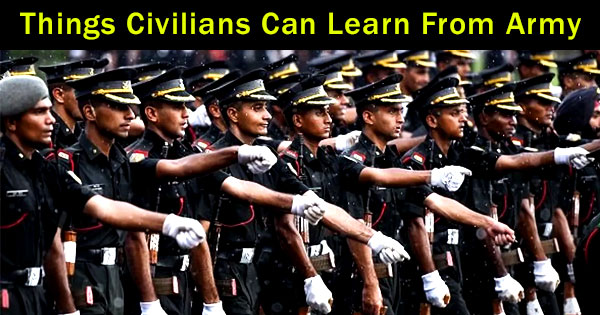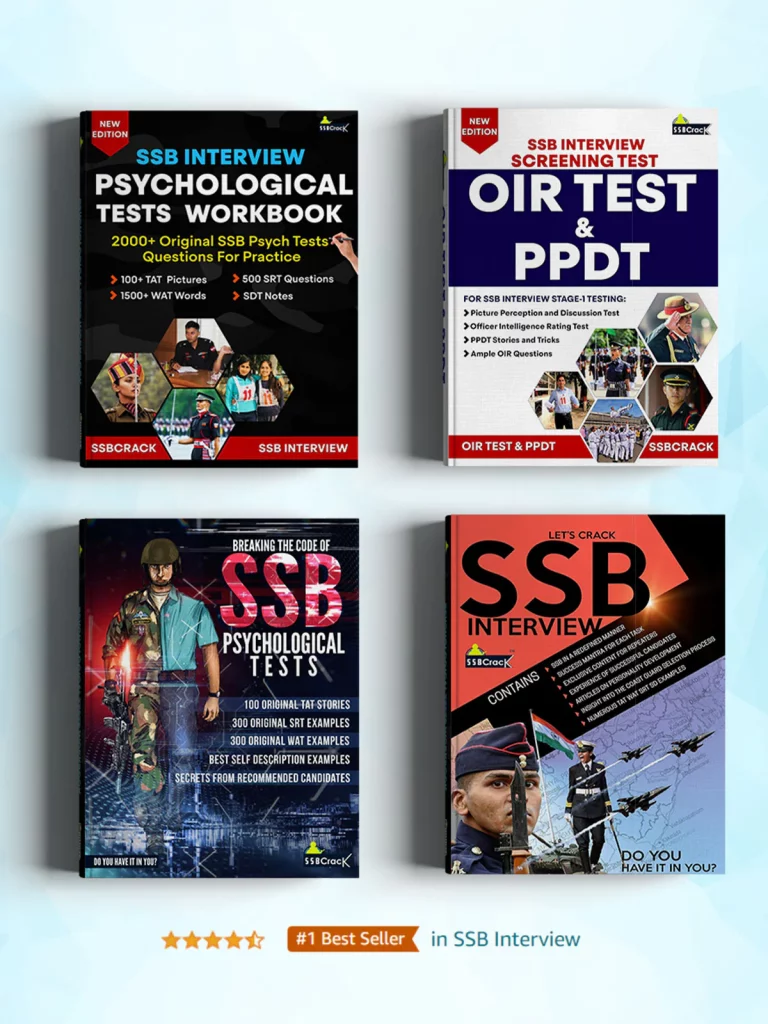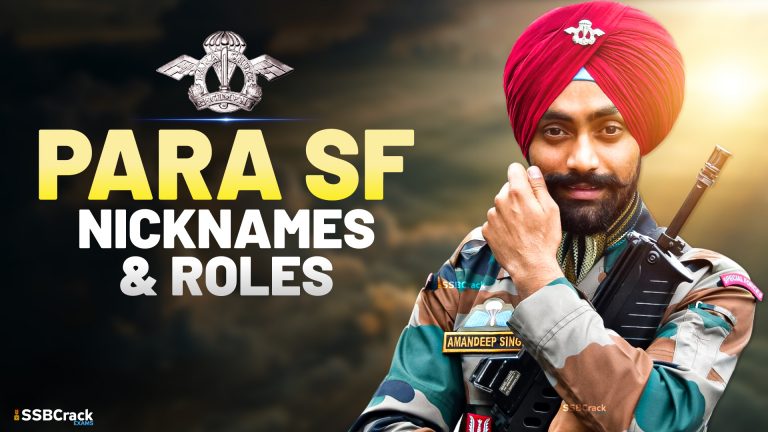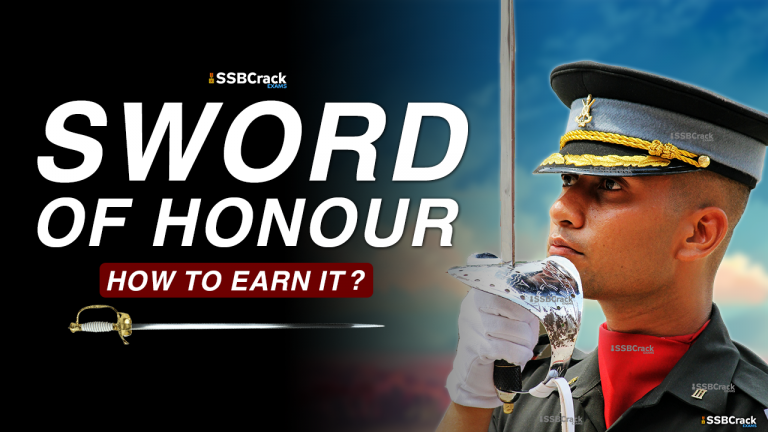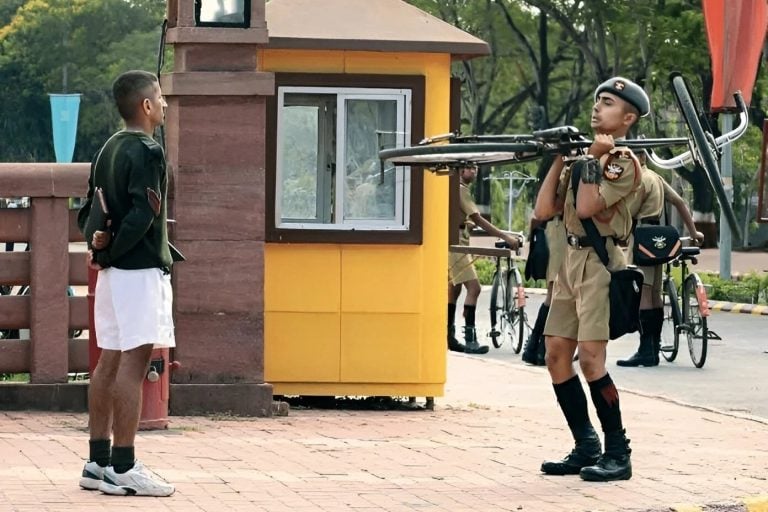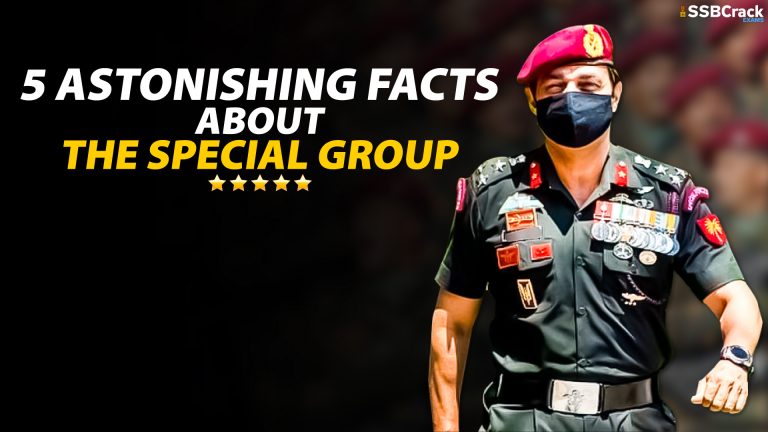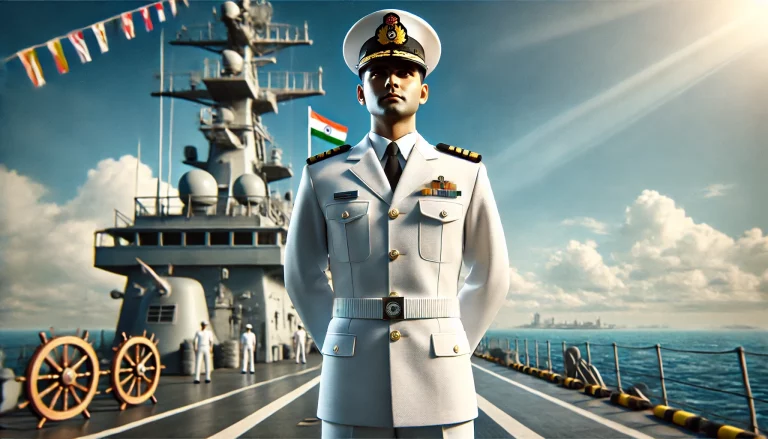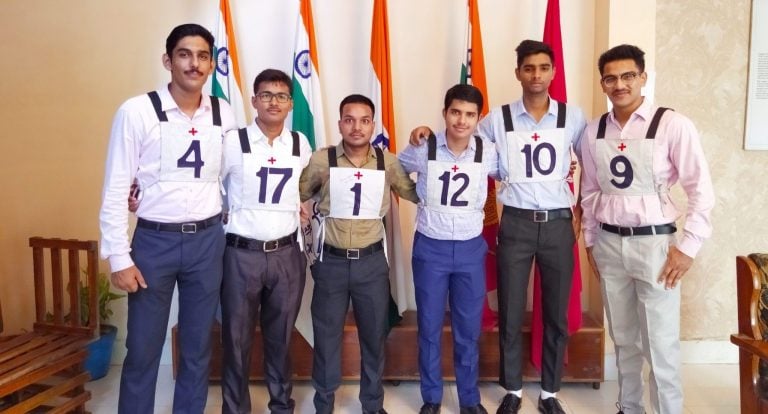We all know what kind of hard work, discipline, fearlessness, sacrifice for the country, iron will, self-confidence and endurance makes an army man. The virtues and characteristic traits of a soldier, in itself, are very hard to follow, especially for a civilian leading an ordinary lifestyle. But those from a non-defence background who aim to pursue the forces as their career, enlist fairly early in their adult life, and tend to learn certain important lessons from leading a life in the army.
In this article, then, we are going to see 10 significant things that civilians can inculcate from the army officers.
Tip 1 : Clothes Make A Man
Army men spend most of their lives when they are not fighting, ironing uniforms, polishing boots, getting a neat haircut and a clean shave. In short, getting all prim and roper. Appearance matters a lot for anyone working for the defence of the country. A smart soldier is considered a good soldier and that when one looks the part, he acts the part well too. A civilian may learn a lot from this, while dressing for a job interview or for a date. He should not look like he has mistakenly come to stroll in the park instead of attending an office meeting!
Tip 2 : Know Your Place
A civilian may never figure out where he belongs and never fit in anywhere. In the Army, this is never be a problem. You will definitely have a place. You will have a team and a task to complete. Your place will be drilled into you until the day you leave. In a civilian life, there is a huge need for an individual getting to know his or her place. Knowing your place in a particular situation is important in life. It helps you realize your rights, privileges, limits and choices and will save you from committing any blunders.
Tip 3 : Work Hard and Be Proud Of It
No matter what your position in a task is, you should always be proud of it. Especially if you worked hard for it. The young army officers, men and women, all feel an look proud to be standing where they are because they know how much hard work, effort and time they have put in to get where they are. That drive is what a civilian should focus on as well. Put in the time, put in the effort and put in the work that is necessary to get to whatever position you want, but always be proud of where you are right now.
Tip 3 : No “I” In Team
In normal ordinary lives, people tend to individualize themselves from others and create a boundary around them, thus segregating their own choices, likes, dislikes. All of us are busy living in our own small worlds and we tend to care less for the people around us. Every time there’s a group of people involved, we think only and only of ourselves. We try to succeed ourselves. But what you need to realize is that you need to work as a team. What is good for the entire group will likely be good for you as well. In the army, there is no concept of “I” or “mine”. Whatever needs to be achieved is achieved as a team and it is together as an army that they strive to protect the nation.
Tip 4 : Details Matter
When you look at a general’s uniform, you will notice the medals and ribbons on his chest. These medals and ribbons each represent a different achievement and they are put in the exact spot that they are meant to be put in. Each of them had to be earned in one way or another. In civilian life, the same can be applied. You always want to look at the details that you are wearing, that they are put in the right place and that they send the message that you want to send. It doesn’t matter whether it’s a watch, a bracelet, a necklace or a pocket square, make sure to pay attention to the details and to use them as a tool to spread your message.
The same applies to your work. If you pay attention to the details that others don’t, you will be remembered as a more effective worker who gives his or her all to the company.
Tip 5 : Accept Setbacks
A soldier quickly learns he is entitled to nothing and, therefore he takes nothing for granted. To “adapt and overcome” is something that all soldiers do. However, it’s a little different in the civilian life. We tend to get disappointed and escape from the outcome of the situation which makes things more difficult to deal with. But in the army, when something goes wrong, they can’t just walk away. They face it and deal with it. Yes, the leadership can call a retreat but if that doesn’t happen, the team must hold its position. This is a very valuable lesson that the civilians can learn from. To face the consequences and overcome it with a brave face and heart.
Tip 6 : Respect Your Food & Drink
People leading ordinary lifestyles do not pay such respects to food and drink and tend to waste them. What, however, we need to learn is how the soldiers learn to pay great respect for food and drink as fuel and how our body responds to what you put in it. They value good cooking and real food with real flavours after spending months eating cardboard-tasting rations.
Tip 7 : Confidence is Everything
There is no place for uncertainty or hesitancy on the battlefield. Therefore, soldiers fighting in the war needs to be quick, decisive and over all, confident. As a leader at any level, having confidence in your decisions is important and once you have decided on a course of action, carrying it out to the best of your abilities is the best way to get it done.
Tip 8 : Learn from the Experience Of Others
Ordinary people in their daily lives seek to explore the unknown, often disbelieving or ignoring the words of the elders or those who are experienced. However, in the army, one quickly learns to listen to and respect the opinions of his seniors which can often save his life. Learning from others’ experience is sometimes not a bad thing to do, instead of restricting you, it can open new doors and avenues for you.
Tip 9 : Not Always can the Technology help
We live in a technology-controlled age and a battlefield is no exception with drones overhead, thermal-imaging systems, advanced weapons, and virtually indestructible vehicles. But Iraq and Afghanistan have made us realize who that soldiering still requires face-to-face interaction and action on the ground and that technology can always fail you. Therefore, a civilian or not, one needs to be a little less dependent on technology for getting a work done.
Tip 10: After Action Reviews
Getting inspired from the army, common men can apply this military technique called “After action reviews” (AARs) in their daily activities. It is a process of review that contrasts what was supposed to happen with what actually did and the reasons why. It highlights what worked, what didn’t, and what needs updating. Each issue is then tracked in an action learning plan. This method prevents defensive behaviour because it is an inclusive way to ask for improvement, a much-needed approach that needs a constructive and effective chalking out of consequences in each and every aspect of a civilian’s life.
I hope that by incorporating these useful lessons in your life, being a civilian, you too can achieve such strong and useful traits that are taught in military academies. However, to learn them practically, follow us, subscribe to our courses and pass the defence competitive exams to become a true army officer.
Jai Hind!
